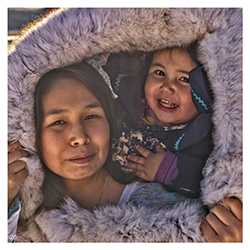NCEZID: Supporting States
State, local, and territorial health departments work to combat emerging and reemerging infectious diseases (like Zika), improve public health (like food safety surveillance), and respond to public health emergencies like outbreaks of E. coli or Salmonella infections. NCEZID supports their work in a variety of ways.
What we’re doing:
- Each year, CDC awards millions of dollars to states through the Epidemiology and Laboratory Capacity for Infectious Diseases (ELC) Cooperative Agreement, one of CDC’s key nationwide cooperative agreements, which is managed by NCEZID.
- The ELC oversees an array of cross-cutting epidemiology, laboratory, and health information systems activities that help domestic public health departments respond to complex infectious disease threats like Zika and antibiotic resistance.
- NCEZID’s innovative online tool, MicrobeNet, provides laboratorians in all 50 states unprecedented—and free—access to CDC’s library of information about more than 2,400 rare and emerging infectious bacteria and fungi.
- This tool helps doctors and laboratorians get the information they need to accurately diagnose unknown causes of diseases faster and save lives.
- The Arctic Investigations Program (AIP) focuses on reducing and preventing infectious diseases that disproportionately affect Alaska Native people. For more than 40 years, AIP has collaborated with partners to tackle infectious disease threats by using state-of-the-art diagnostics, epidemiology, outbreak investigations, and targeted research.
- Approximately 20% of rural Alaska homes lack running water and sanitation services. AIP studies showed that running water and sanitation in homes prevent the spread of infectious diseases like bloodstream infections, pneumonia, and skin infections. This work resulted in policy changes that have made it easier to get water and sewer grants, which can help to provide more homes with running water.
- The Emerging Infections Program (EIP), a network of state health departments and their collaborators, quickly translates surveillance and research activities into informed policy and public health practice. For example, EIP work has been instrumental in evaluating and honing strategies for preventing severe disease in newborns caused by group B Streptococcus.
Every year, NCEZID awards millions of dollars to states to help them control infectious disease.
- Page last reviewed: August 28, 2017
- Page last updated: August 28, 2017
- Content source:
Centers for Disease Control and Prevention
National Center for Emerging and Zoonotic Infectious Diseases (NCEZID)


 ShareCompartir
ShareCompartir
